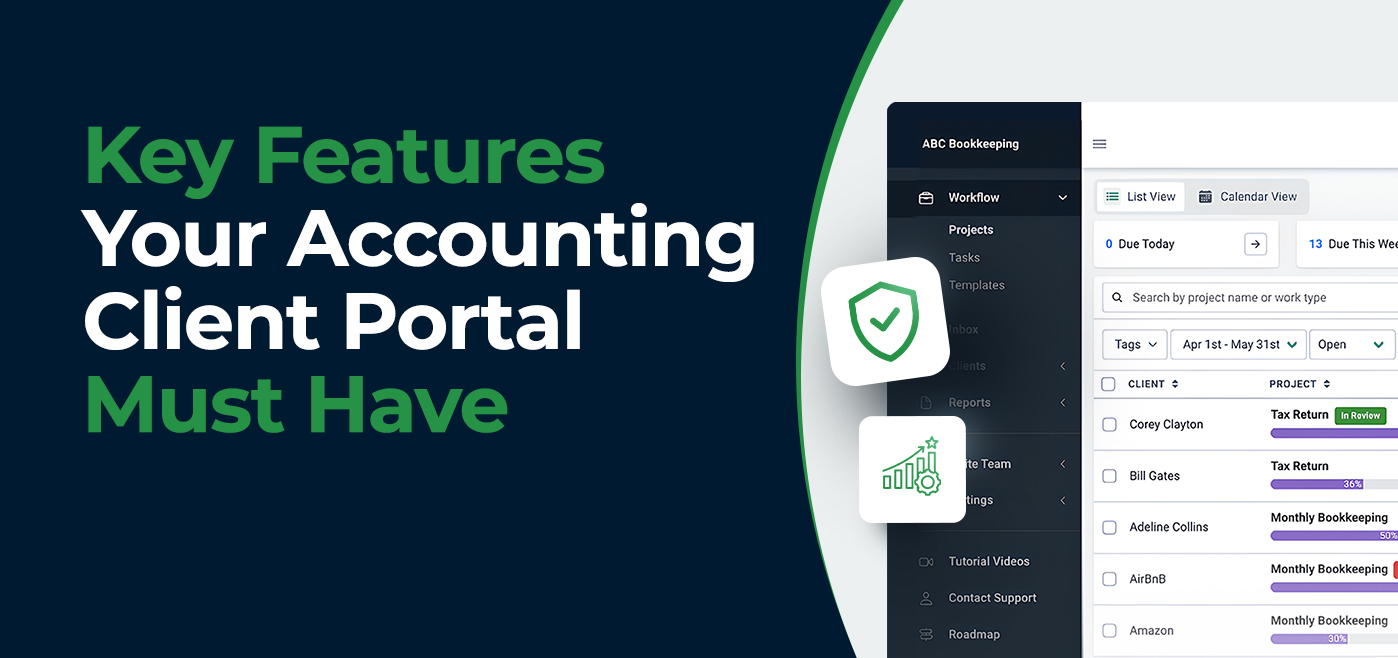What is a CAF Number? A Detailed Guide to Get Yours
Author: Financial Cents
In this article
Congratulations! You’ve finally taken the bold step of starting your tax preparation firm. You’re excited about the prospect of handling tax matters and representing clients before the Internal Revenue Service (IRS). Awesome!
But before you jump in at the deep end, here’s something you should know: The IRS grants only qualified individuals or entities access to taxpayers’ information.
So, to gain access to your client’s confidential tax records, you need to file Form 2848 or 8821.
However, these forms require you to enter your Centralized Authorization File (CAF) number. It’s a unique number the IRS assigns qualified professionals, identifying them as authorized representatives for their clients in tax-related matters.
In this guide, we’ll shed more light on what a CAF number is and how to get one for your practice. You’ll also learn more about mistakes to avoid and what to do when you forget your CAF number.
What is a CAF Number?
A Centralized Authorization File (CAF) number is a unique nine-digit identification number the IRS assigns to accountants or tax professionals after filing Form 2848 or 8821 for the first time.
The IRS maintains a secure CAF database for storing information about individuals or entities they authorize to represent taxpayers.
So, each time you need to inspect your client’s tax records, the IRS refers to your CAF number to confirm you have the authority to act on behalf of your clients. It saves you the time and stress of sending a fax or mailed authorization every time.
As such, a CAF number is a must-have for accountants and tax pros, especially those just starting a tax management, planning, or preparation firm.
With a CAF number, you can easily:
- Request client tax transcripts: These documents are essential for preparing accurate tax returns and resolving tax issues.
- Review client account information: Accessing account balances, payment history, and other vital details is crucial for providing informed tax advice to clients.
- Receive important tax notices: Stay updated on potential tax issues and ensure timely responses to IRS inquiries.
- Represent clients before the IRS: Attend meetings, negotiate settlements, and advocate for your client’s interests before the IRS.
However, not having a CAF Number limits your ability to provide comprehensive tax services to your clients. We bet you wouldn’t want that.
Note: The CAF number is different from your TIN (Taxpayer Identification Number), EIN (Employer Identification Number), or PTIN (Preparer Tax Identification Number).
Benefits of CAF Number
As an accounting professional, having a CAF number comes with a range of benefits that can enhance your practice and provide a smoother experience for you and your clients.
Here are some of its benefits:
- Swift Access to Client Tax Information: With a CAF Number, you can quickly and easily access your clients’ tax information when preparing their returns or addressing tax-related matters. This increases accuracy and efficiency in your practice.
- Increased Trust and Professionalism: Possessing a CAF Number demonstrates your commitment to the IRS regulations. It instills confidence in your clients, as they know you are authorized to represent them before the IRS. Also, it boosts your reputation as a credible tax professional.
- Streamlined Communication With the IRS: Your CAF Number makes communication with the IRS seamless. It enables you to submit authorization requests, receive important notices, and engage in productive discussions on behalf of your clients.
- Ability to Represent Clients Before the IRS: Having a CAF Number allows you to represent your clients before the IRS. You can attend meetings, negotiate settlements, and advocate for your client’s best interests during tax-related matters.
- Expanded Service Offerings: With access to client tax information, you can offer a wider range of services, including tax planning, audit defense, and appeals representation. This diversifies your practice and increases potential revenue streams.
Obtaining your CAF Number is an essential step to becoming a successful accounting professional. This makes it a crucial tool to have in your arsenal as it opens up several opportunities for providing comprehensive tax services, building strong client relationships, and streamlining your interactions with the IRS.
How to Get a CAF Number
As mentioned earlier, the IRS typically issues CAF numbers to first-time Form 2848 or 8821 filers.
Here are the steps to getting your CAF number:
-
- Determine Your Eligibility: Ensure that you are authorized to represent your clients.
- Complete the Form: the next step is to complete Form 2848 (Power of Attorney) or Form 8821 (Tax Information Authorization). When completing any of the forms for your clients, simply indicate “none” as your CAF number in the space where it’s requested.
- Submit the Form: Once you’ve completed the form, submit it to the IRS electronically or via mail.
The entire process could take a few weeks to get your CAF number. According to the IRS website, “Expect delays for Centralized Authorization File (CAF) number authorizations. Normal operations will resume as soon as possible.”
During this waiting period, the IRS will verify the information provided and perform necessary background checks.
Upon successful processing, you’ll receive a letter from the IRS containing your assigned nine-digit CAF number, confirming you’re an authorized representative. Use it for all future Form 2848 and 8821 submissions and correspondence with the IRS.
Note: You can only have one CAF number, regardless of the number of clients you represent, and it’s valid for an indefinite period unless revoked by the IRS.
Purpose of Form 8821
Form 8821 allows taxpayers to grant designated individuals or entities like attorneys, CPAs, or enrolled agents access to their confidential tax records.
Form 8821, officially known as the Tax Information Authorization is commonly used for various purposes such as:
- Tax preparation
- Filing or amending tax returns
- Financial planning and tax advisory
- Resolving tax issues
- Receiving and reviewing important notices from the IRS
Learn all you need to know about Form 8821 in this guide.
Download: Form 8821 Checklist Template for Free.
Purpose of Form 2848
Form 2848 also known as Power of Attorney and Declaration of Representative shares a similar purpose with Form 8821. But that’s not all.
It also allows taxpayers grant tax professionals, attorneys, or enrolled agents, the power to represent them before the IRS and make decisions on their behalf. This may be due to the taxpayer’s inability to handle their tax matters, being outside the country, or chronic illness.
Learn all you need to know about Form 2848 in this guide.
Download: Form 2828 Checklist Template for Free.
You may be interested in:
CAF Number Processing: Mistakes and Errors to Avoid
Obtaining a CAF number is crucial for accountants like you who want to handle clients’ taxes or represent them before the IRS. However, errors in the CAF applications can delay the process or lead to rejection.
Here are some critical mistakes to avoid during CAF number processing:
1. Incomplete or Inaccurate Information
Missing information on any of the forms results in outright rejection by the IRS. For example, failure to include the required taxpayer and/or representative identification information or not adding the representative designation in Form 2848 is a basis for rejection.
2. Incorrect client information
Another reason the IRS could delay or reject your CAF application is if you provide incorrect client information. Ensure you double-check all client details, such as names and identification numbers, before submitting the forms.
3. Failure to verify eligibility
Only individuals eligible to practice before the IRS can be named as representatives. So before filing Form 2848 or 8821, confirm you’re eligible to act as a representative before the IRS. The IRS has specific requirements and qualifications for representatives, such as attorneys, CPAs, enrolled agents, and other accredited representatives.
4. Overlooking signature requirements
Something as little as a signature could be why the IRS rejects your application. For instance, using a digital signature, a signature stamp, or not adding any signature would lead to rejection. To ensure compliance and avoid potential issues, review the IRS’s requirements on how to sign Forms 2848 or 8821 properly.
5. Incomplete Power of Attorney Documentation
Incomplete POA documentation leads to delays and requests for additional information, causing frustration for both you and your clients. Ensure you include all relevant information and documents when filing the Power of Attorney form.
What Happens If I forget my CAF number?
You’ve been so busy with tax disputes, filing forms, and representing clients that you forgot your CAF number. All efforts to remember its location proved abortive. Don’t worry, it’s no cause for alarm.
Retrieving your CAF number from the IRS is a pretty straightforward process. Contact the Practitioner Priority Service (PPS) at 866-860-4259 to request assistance.
Keep in mind that the PPS assistant will ask you to provide some information to authenticate your identity before processing your request. Ensure you have all the necessary information beforehand.
Grow Your Tax Firm With Financial Cents
To streamline your accounting or tax firm’s processes and set yourself up for success, you need accounting practice management software like Financial Cents that saves time, increases efficiency, and boosts productivity.
Use Financial Cents Accounting Practice Management software to scale your accounting firm.
Instantly download this blog article as a PDF
Download free workflow templates
Get all the checklist templates you need to streamline and scale your accounting firm!
Subscribe to Newsletter
We're talking high-value articles, expert interviews, actionable guides, and events.

Key Features Your Accounting Client Portal Must Have
By utilizing a client portal, you can eliminate the inefficiencies of manual methods and create a smoother workflow for both you and…
May 15, 2024

The 5 Best Avii Workspace Alternatives for Modern Firms
If, for whatever reason, Avii does not meet your long-term workflow needs, this review of the best Avii workspace alternatives should help…
May 08, 2024
